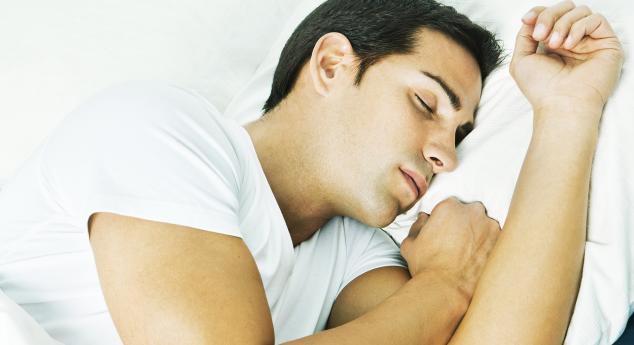Sleep Troubles? Here’s How to Fix Them - The quest for a restful night's sleep is a constant struggle for some, but gadget makers with devices that track sleep patterns are noticing trends among their users and behaviors that have helped them wake up refreshed.
By monitoring body movements at night and during naps using armbands and wristbands with motion and temperature sensors, companies have gathered data on thousands of users striving for a better night's sleep. And they've seen sleep improvement among users who've gotten sun exposure early in the day, altered their bedtime rituals and changed their eating habits.

"Insomnia is something that most people can overcome by just understanding their sleep better ... and having the information on what to do next," said Julia Hu, founder and chief executive officer of Lark, a sleep coach device maker.
In a study of 3,089 of Lark users, nearly 22 percent experienced symptoms of insomnia including trouble falling asleep, trouble staying asleep and generally spending a significant amount of time awake in bed, Lark reported.
Notably, more people with insomnia symptoms had trouble staying asleep rather than falling asleep in the first place, the study found. About 14 percent of all Lark users had trouble staying asleep vs. 9 percent of users who had trouble falling asleep, according to the study.
After tracking their sleep patterns and changing their behaviors before bedtime, nearly 73 percent of the 669 users with any insomnia symptoms got better sleep, according to the study.
Using advice from sleep coaches used by NBA, NFL and Olympic athletes, Lark's sleep coaching device suggests behavior changes that could help its users sleep better, including getting ready for bed 30 minutes before a user's target bed time, avoiding caffeine after 3 p.m. and keeping computers away from the bed. Exposure to sunlight early in the morning can also affect the body's sleep cycle, Hu told "Big Data Download."
And another gadget maker, BodyMedia, found a correlation between sleep duration and obesity among 6,344 users of its activity and sleep tracking device, suggesting that weight loss can lead to better sleep. During sleep, the body regulates hormones that cause hunger, BodyMedia explains.
Using body mass index, a measure calculated using weight and height, the company found that users at a healthy weight got about 412 minutes of sleep on average compared 403 minutes on average among obese gadget users with a body mass index of between 35 and 40. The BMI of those at a "normal" weight is between 18.5 and 24.9, according to the Centers for Disease Control and Prevention.
And losing weight can actually ease breathing problems including snoring and obstructive sleep apnea, according to the University of Minnesota.
Besides losing weight, BodyMedia suggests that its users in need of better sleep avoid large meals late at night, take a hot bath before bed and avoid alcoholic beverages before bed, the company said.
BodyMedia's research also found sleep differences between men and women.
"We actually saw that women were getting more sleep than men across the board," said BodyMedia chief technology Officer Ivo Stivoric, who added that the company is doing further research to determine the daily habits that may contribute to that finding.
One common thread that BodyMedia identified is that sleepers of all types get more sleep per night in the winter than they do in the summer. In the month of June, the month with the most daylight hours, BodyMedia users got an average of nearly 6.3 hours of sleep vs. more than 6.5 hours of sleep in January. ( Big Data Download )
Blog : Creative Styles
Post : Sleep Troubles? Here’s How to Fix Them
No comments:
Post a Comment